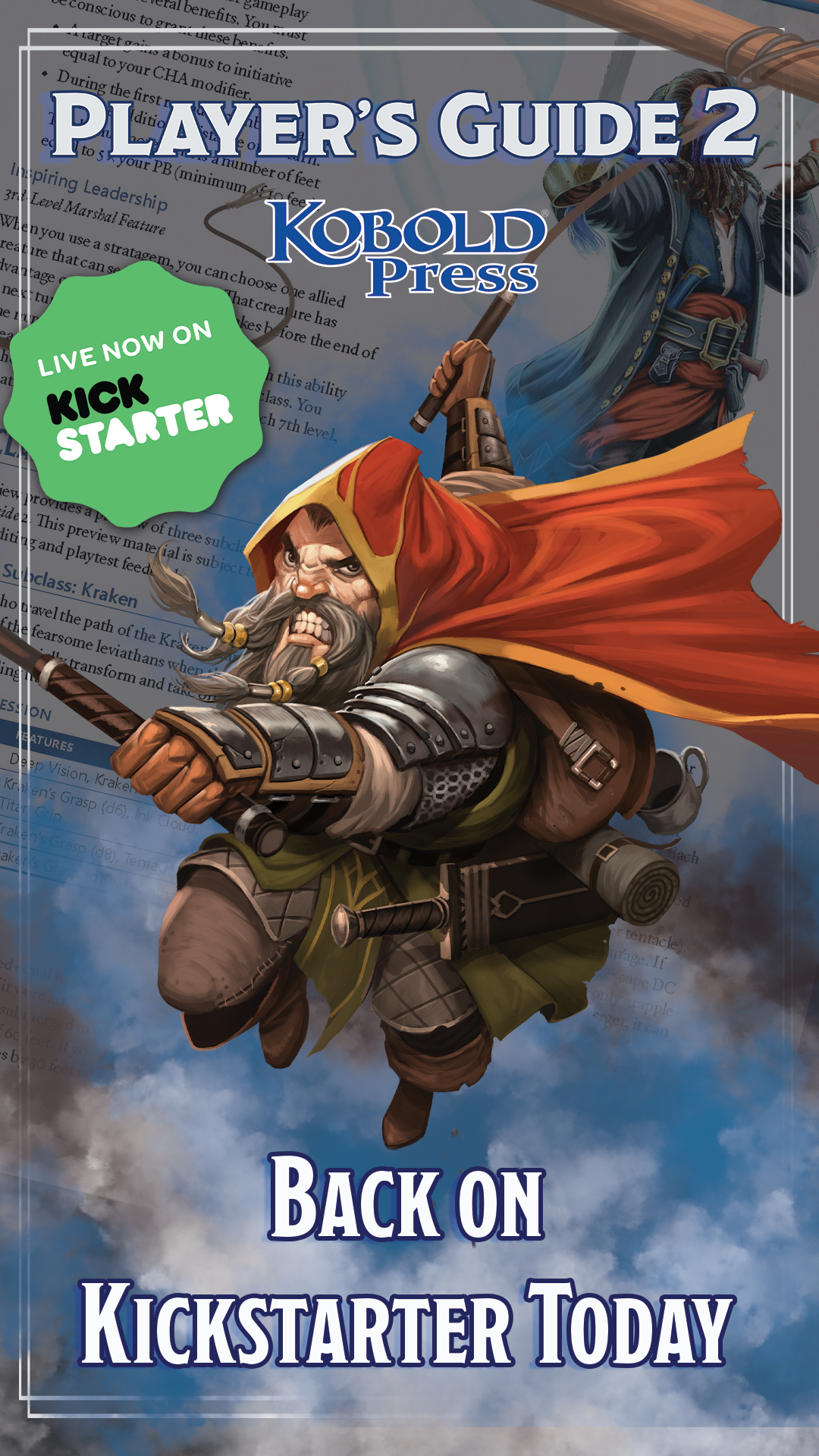
Downtime is one of the less appreciated additions of the Tales of the Valiant RPG to the 5E space. Downtime creates a playtested, workable, fun system for your character to have a life when they’re not going down holes in the ground. The Player’s Guide contains five common downtime activities, including researching, training, and the ever-popular carousing.
But there’s no way that list is exhaustive. Here is a new downtime activity for you to snoop around in your spare time: Investigation.
Investigating
You can spend downtime using your adventuring skills to help people with problems that are either not matters of law or too minor for the constabulary to prioritize (and where the stakes are too minor to involve your whole party).
Time. To conduct an investigation, a PC must spend at least one week of downtime questioning persons of interest, discovering evidence, and analyzing any findings. Depending on the size of the city or other locale, the GM might rule that only low or medium risk jobs are available.
Cost. For each week spent investigating, a PC must spend money to cover expenses; the amount depends on the risk involved with the case. This cost represents greasing palms, purchasing specialized equipment, gaining access to restricted areas, and similar expenses. Listed costs cover an entire week of investigating.
- Low Risk (10 gp). A case regarding a dispute between commoners and petty crimes or grievances.
- Medium Risk (50 gp). A case regarding a dispute involving business owners, government employees, minor nobles, or minor criminals who have evaded justice.
- High Risk (250 gp). A case regarding a dispute involving very important people, nobles and high society, or major criminals who have evaded justice.
Resolution. After each week spent investigating, a PC makes an INT (Investigation) check or a similarly relevant ability check to determine progress or resolution of the case and any contacts, favors, or enemies gained as shown on the Investigating Resolution table.
Investigating Resolution
| CHECK RESULT | RESOLUTION |
| 1–5 | You are unable to reach a satisfactory conclusion to the case at hand. You lose the money you spent on the investigation and make two enemies. |
| 6–10 | You complete the investigation and recoup your costs, but you make one enemy. |
| 11–15 | You complete the investigation, recoup your costs, and earn 5 gp. Make one new contact or gain one favor with an existing contact. |
| 16–20 | You complete the investigation, recoup your costs, and earn 25 gp. Make two new contacts or gain two favors with existing contacts (or one of each). |
| 21+ | You complete the investigation, recoup your costs, and earn 125 gp + bonus gp equal to your PB x 5. Make three new contacts or gain three favors with existing contacts (or a combination of those options). |
USING CONTACTS AND FAVORS
Making a contact represents time spent building a relationship with a specific NPC. When a new contact is gained, the GM and PC can work together to decide if they made a contact of a suitable NPC previously encountered in the game, a new distinct NPC that needs a name and personality, or if an NPC’s function is needed more than a person, such as “city guard” or “spice merchant.” The GM has final say on what a particular contact can accomplish.
Contacts can be called on to help PCs by performing favors for them. In general, favors can be called in to accomplish tasks that don’t put contacts at risk of harm or betray their nature. For example, a favor likely can’t be called in to make a contact fight for you, but a favor could be called in to have an informant contact provide intel regarding the goings-on of a local crime syndicate.
See the Favors and Contacts table for examples of contacts and favors.
FAVORS AND CONTACTS
| CONTACT TYPE | SUGGESTED FAVORS |
| Informant | Provide insight on a criminal or criminal organization. Grant you access to a location where normally only criminals are welcome. |
| Member of the Constabulary | Grant you access to legal records or resources. Provide backup when enacting justice in the constabulary’s community requires force. |
| Subject Matter Consultant | Reduce the amount of time required to do the researching downtime activity (see Researching in Chapter 6 of Player’s Guide) on a topic in your contact’s area of expertise. Direct you toward other people who might have useful information regarding your investigation. |
DEALING WITH ENEMIES
Making an enemy represents your actions causing conflict with others, such as foiling a criminal’s scheme, embarrassing a local lordling, causing a business owner to lose a lucrative contract, asking too many of the wrong kinds of questions of the wrong kinds of people, or generally rubbing people the wrong way. When you make a new enemy, the GM decides if it is a suitable NPC previously encountered in your campaign or a distinct new NPC with a name and personality.
See the Enemy Types table for examples of the types of enemies you might make.
ENEMY TYPES
| TYPE | SUGGESTED ENEMY DESCRIPTION | SUGGESTED HINDRANCE | # OF FAVORS TO REMOVE |
| Minor | A member of the lower class or a petty criminal who has few resources but a fierce conviction that you wronged them. | Your personal property is destroyed, vandalized, or stolen. Damaging rumors about you spread. | 1 |
| Moderate | A respected and/or feared guild member, business owner, member of the constabulary, or community leader. | A guild makes it so you have to pay higher prices for goods and services. The constabulary regularly hassles you over petty (or imagined) grievances. | 3 |
| Major | A very important person high in the ranks of local government, a crime syndicate, or another hierarchical organization with sufficient power at their disposal to make things very difficult for you. Note: The GM may rule that this kind of enemy can only be removed via roleplay. | A criminal organization makes periodic assassination attempts on you or targets people you care about with violence. A high-ranking city official makes it impossible for you to buy property in their city or ensures you are denied licenses or access. | 6 |

Read more at this site
